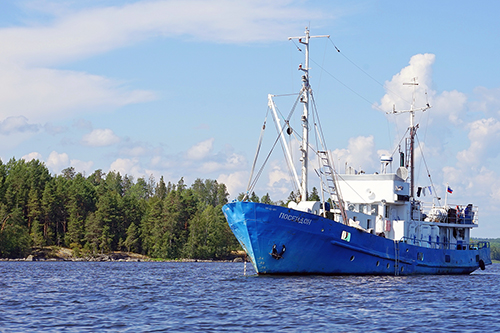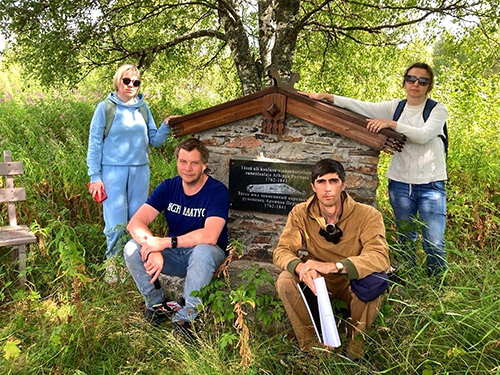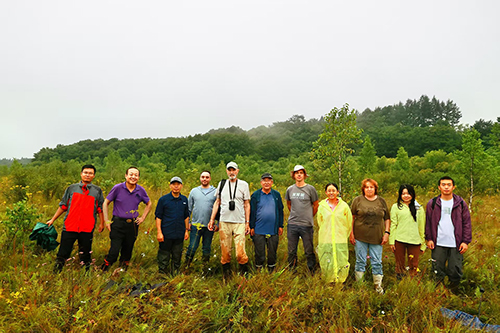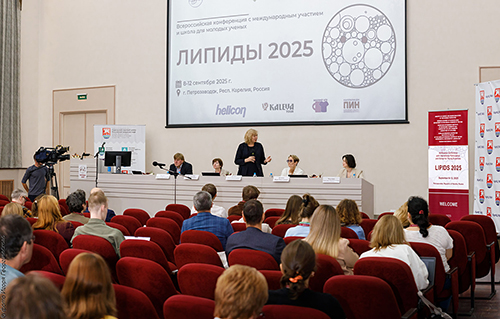Opening the Conference, Director of the Institute of Linguistics, Literature and History KarRC RAS Olga Ilyukha reminded that Bubrikh’s Readings have a long history, starting from 2001.
– The event has always had young researchers widely represented in the program. The Conference establishes the baseline for research, helps specialists in Finno-Ugric studies get their bearings and creates a sense of solidarity in the scientific community, – Olga Ilyukha remarked.

Director informed that by the start of the Conference the Institute prepared a special website “Bubrikh’s Readings”. It contains facts from the biography of the founder of Finno-Ugric studies in Russia Dmitry Bubrikh and materials from previous conferences.
Bubrikh’s Readings are organized by the Institute of Linguistics, Literature and History KarRC RAS in collaboration with the Petrozavodsk State University.
– During these 20 years, the Conference has turned into an essential discussion arena for scholars and educationists. The formats of the Readings have changed over the years, but the issues proposed for discussion have always remained topical. This year, the Conference focuses on digitalization, which is symbolic considering that the digital is ubiquitous - both in research and in education, – said Oksana Abramova, Director of the Philology Institute of the Petrozavodsk State University.

On behalf of the Republic of Karelia Ministry of Ethnic and Regional Policy, the participants were greeted by Elena Migunova, Head of the Department for Governmental Support to Indigenous Peoples.
"It is symbolic that in the first year of the Decade of Indigenous Languages the Conference addresses the use and promotion of minority languages in the digital space. Over the years, it has served as an effective platform for communication and exchange of experience between specialists from diverse fields. The participants are invariably united in their search for new methods of preserving, developing, and raising awareness of the republic's indigenous languages," reads the greeting address from the ministry.
Elena Migunova handed a Thank-you Letter to Irina Novak, Head of the Linguistics Section of ILLH KarRC RAS, for preservation, development and promotion of the Karelian language, as well as for promoting inter-regional cooperation between the Republic of Karelia and the Tver Region.
Irina Novak opened the main program of the conference with her scientific presentation. She presented a classification of the Balto-Finnic languages of Karelia based on lexicostatistical data.
Irina Novak reminded that it was Dmitry Bubrikh who pioneered the formation of Balto-Finnic dialectology in Karelia. In 1930, he organized the first expedition to collect Balto-Finnic dialects. In 1931, the scientist took an active part in preparing a scientific expedition to the Veps. "Thus, dialectological research was initiated in Karelia, eventually determining one of the main areas of activity for the present-day Institute of Linguistics, Literature and History," the researcher added.

One of the principal outputs of dialectological work is linguistic atlases and dialect dictionaries. The data collected by scientists during many years for these editions are still used to handle current problems in dialectology, also by using modern methods of analysis.
As an example, Irina Novak presented the method of lexicostatistics used to measure the degree of affinity between languages. The main criterion is the retention of the basic vocabulary. "There is a rule which says that the higher the percentage of matches in the basic vocabularies between the compared languages, the closer these languages are to each other," - the scientist explained.
This methodology is used to distinguish between languages and to delimit their dialects and supradialects. The same is valid in Karelian dialectology.
– In recent years, the problem of "Language and dialect" has come to the fore. Previously, it was especially topical for Ludic dialects. One opinion is that Ludic dialects belong to the Karelian language, while others consider them to constitute a separate Balto-Finnic language. There is also an opinion that Ludic dialects form a supradialect of the Veps language. This problem is now valid for the Livvi patois as well, - Irina Novak pointed out.
The morning session was facilitated by Irma Mullonen, Senior Researcher at ILLH KarRC RAS, and Sergey Myznikov, Chief Researcher at the Institute of Slavic Studies RAS, Corresponding Academician. He also made a presentation on ideographic mapping of the vocabulary of northern minority languages.

On the first day of the Bubrikh's Readings, presentations were made by experts from Petrozavodsk, Moscow, St. Petersburg, and Yekaterinburg. The Conference will continue on October 27th.
Photo gallery



























